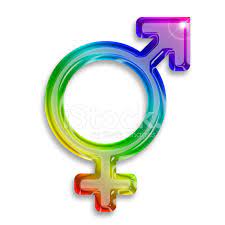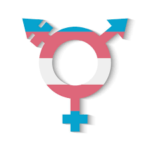Transgender women, often referred to as Transgender Females, are individuals assigned male at birth who identify and live as women. The conversation surrounding transgender identities has gained significant visibility in recent years, and understanding the complexities of this journey is essential for fostering inclusivity. This article aims to provide a comprehensive overview of transgender female identity, exploring various aspects such as transitioning, misconceptions, and the need for supportive communities.
As society evolves, so does the language and understanding of gender. Recognizing and respecting transgender women is crucial not just for their well-being, but also for cultivating a more inclusive world. Let’s dive into the essentials of the transgender female experience and how we can all contribute to a more supportive environment.Estrogen Functions In Females In All Of The Following ExceptForced Feminization Sex Stories
Understanding Transgender Female Identity: A Primer
Transgender female identity is about aligning one’s external presentation and social identity with their internal understanding of themselves as women. This journey can be deeply personal and varies significantly between individuals. Some may choose to transition socially by changing their name, pronouns, and presentation, while others may opt for medical interventions, including hormone therapy or surgeries. It’s vital to understand that being transgender is not a phase or a trend; it is an intrinsic aspect of who someone is.
The journey of a transgender woman typically begins with self-discovery and acceptance. This phase can be both liberating and challenging, as individuals navigate societal norms and expectations. For many, it involves seeking out information, connecting with supportive communities, and finding resources that affirm their identity. Understanding transgender identity is not just about acknowledging differences but also recognizing the common humanity that binds us all together.
The Journey: Transitioning to a Transgender Female
Transitioning can encompass a wide range of experiences and actions. For some transgender women, the process may include changing their name and pronouns, adopting a feminine appearance through clothing and makeup, or undergoing hormone replacement therapy (HRT). HRT can help align a person’s physical characteristics with their gender identity, leading to changes in body fat distribution, muscle mass, and even emotional well-being. Each path to transition is unique and should be respected as an individual choice.
Moreover, transition is not just a physical journey; it involves emotional and psychological adjustments as well. Many transgender women may experience a mix of elation and anxiety during this process. The support from friends, family, and community can play a crucial role in easing these transitions. It’s essential to recognize that transitioning is not a one-size-fits-all process; every individual will experience it in their own way, and timelines can vary significantly.
Common Misconceptions About Transgender Women
One of the most significant misconceptions about transgender women is that they are simply "men in dresses." This reductive view fails to recognize the complexity of their identities and experiences. Transgender women affirm their identity as female, and it is critical to validate their experiences and perspectives. Such misconceptions can perpetuate harmful stereotypes and contribute to societal stigma and discrimination.
Another common myth is that transgender women are simply seeking attention or are confused about their gender identity. In reality, recognizing and embracing one’s gender identity often takes immense courage and self-reflection. Many transgender women face significant challenges in their lives, including discrimination, violence, and mental health struggles. Understanding the realities of transgender experiences helps to combat these misconceptions and fosters a more inclusive society.
The Importance of Respecting Pronouns and Names
Respecting a transgender woman’s chosen name and pronouns is a fundamental way to affirm her identity. Using the correct name and pronouns is not just a matter of politeness; it is an acknowledgment of a person’s identity and existence. Misgendering someone—using incorrect pronouns or names—can have serious emotional consequences and contribute to feelings of invalidation and distress.
In social settings, it’s important to create an environment where everyone feels safe and respected. Encouraging the use of pronouns in introductions can help normalize this practice and promote understanding. When we make a conscious effort to respect others’ identities, we contribute to a culture of acceptance and support that benefits everyone.
Navigating Healthcare: Tips for Transgender Females
Navigating healthcare can be a daunting process for transgender women, often filled with challenges related to finding knowledgeable providers and accessing gender-affirming care. It’s essential to seek out healthcare professionals who are experienced and sensitive to transgender issues. Many transgender women may find it helpful to connect with local LGBTQ+ organizations that can provide resources and referrals to supportive healthcare providers.
Additionally, it’s crucial to advocate for oneself in medical settings. Preparing questions in advance, bringing someone for support, and being clear about healthcare needs can empower transgender women during appointments. Understanding one’s rights and options helps to navigate the healthcare system more effectively, ensuring that every individual receives the respectful and appropriate care they deserve.
Building Supportive Communities for Trans Women
Creating supportive communities for transgender women is essential for fostering a sense of belonging and understanding. These communities can provide safe spaces where individuals share their experiences, challenges, and triumphs. Online platforms, local support groups, and social media can connect transgender women with one another, helping them build networks of solidarity and encouragement.
In addition to peer support, allies play a critical role in these communities. Friends, family, and advocates can help amplify the voices of transgender women and promote awareness about their issues. Building inclusive spaces where everyone feels valued and heard is fundamental in combating isolation and discrimination faced by many transgender individuals.
Celebrating Transgender Women: Stories of Resilience
Transgender women have demonstrated remarkable resilience in the face of significant societal challenges. Celebrating their stories can inspire others and foster a deeper understanding of the complexities of gender identity. Many transgender women are making incredible contributions to society, excelling in fields such as art, activism, science, and politics, often using their platforms to advocate for others.
Sharing these stories not only highlights the accomplishments of transgender women but also sheds light on the ongoing struggles they face. Documentaries, books, and social media campaigns can serve as powerful tools to amplify these voices. By celebrating their resilience, we honor their journeys and inspire future generations to embrace their identities unapologetically.
Resources for Transgender Females: Where to Find Help
There are many valuable resources available for transgender women looking for support. National organizations such as the Human Rights Campaign and the National Center for Transgender Equality offer a wealth of information and advocacy resources. Additionally, local LGBTQ+ centers often provide essential services, including counseling, support groups, and health resources tailored specifically for transgender individuals.
Online forums and social media groups can be great places for transgender women to connect and share experiences. Websites like Trans Lifeline provide immediate support for those in crisis, ensuring that help is available when needed. By utilizing these resources, transgender women can find the support and community they deserve.
Understanding and supporting transgender women is a journey that requires empathy, education, and respect. By demystifying the complexities of transgender female identity and addressing misconceptions, we can contribute to a more inclusive and compassionate society. Each step we take to respect identities, advocate for healthcare access, and celebrate resilience brings us closer to a world where everyone can fully embrace who they are. Together, let’s strive to uplift the voices and experiences of transgender women, fostering an environment where they can thrive and shine.


